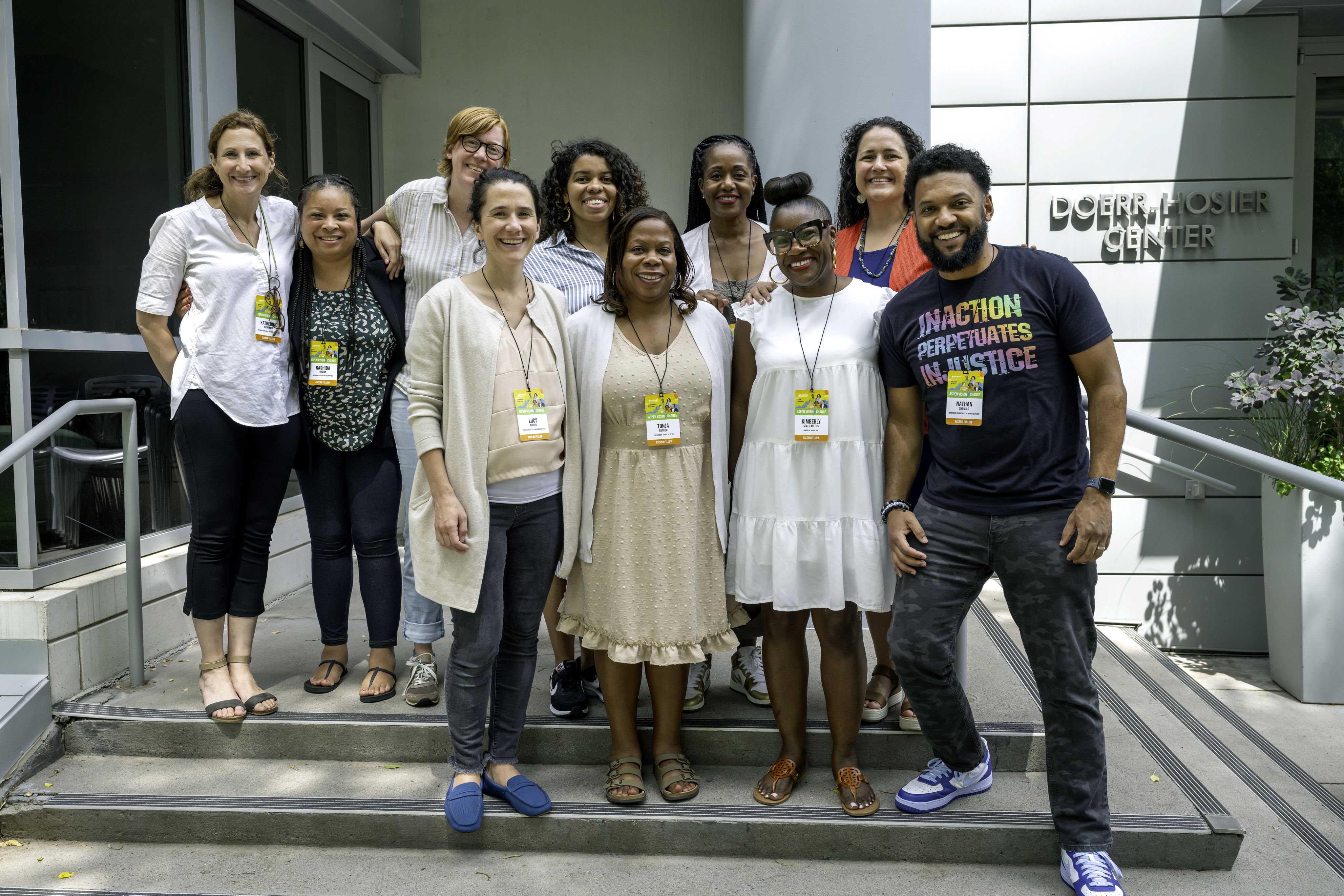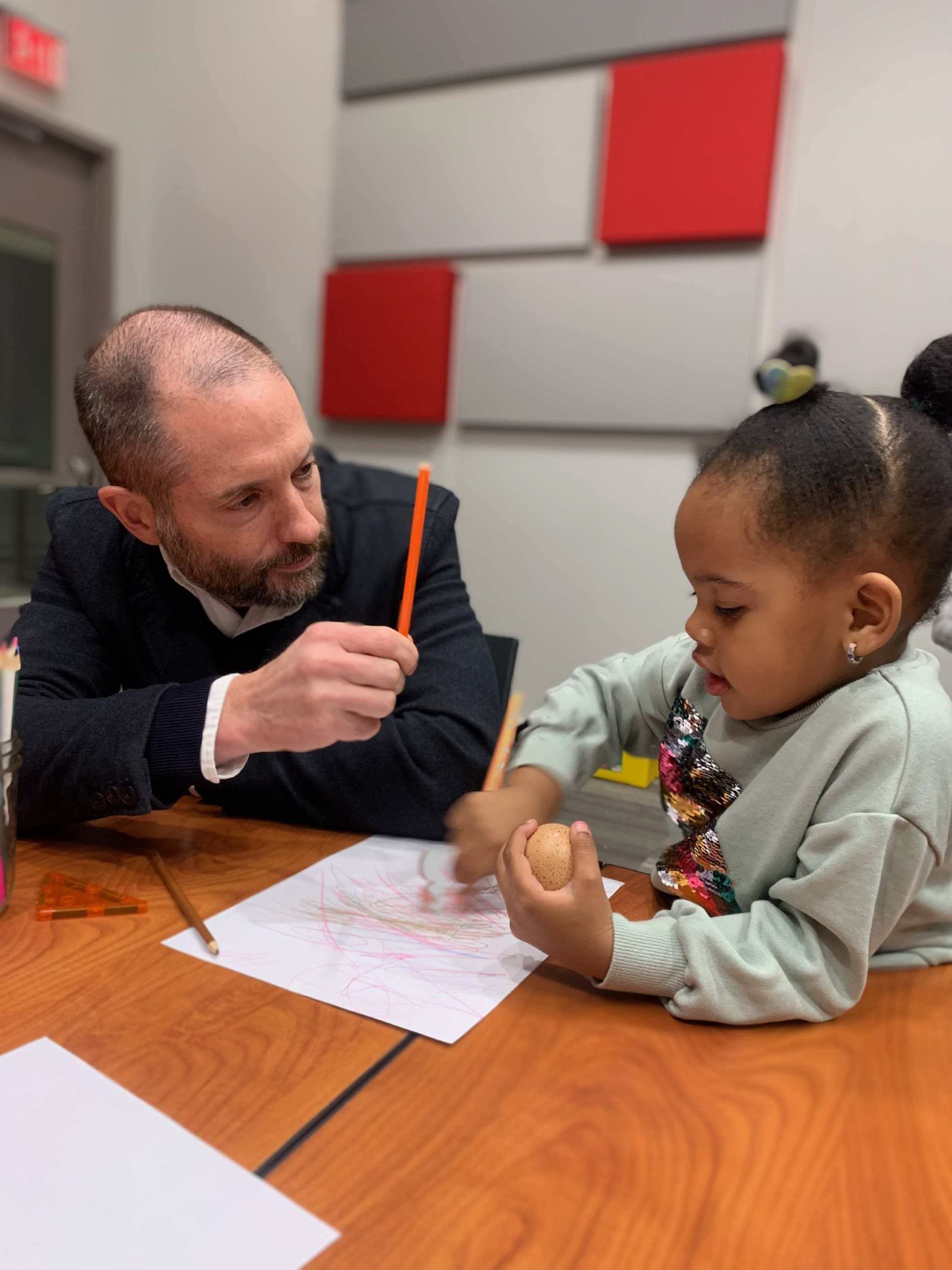The Making of a Beloved Birth Culture
Leseliey Welch challenges us to rethink how we are bringing babies into the world.
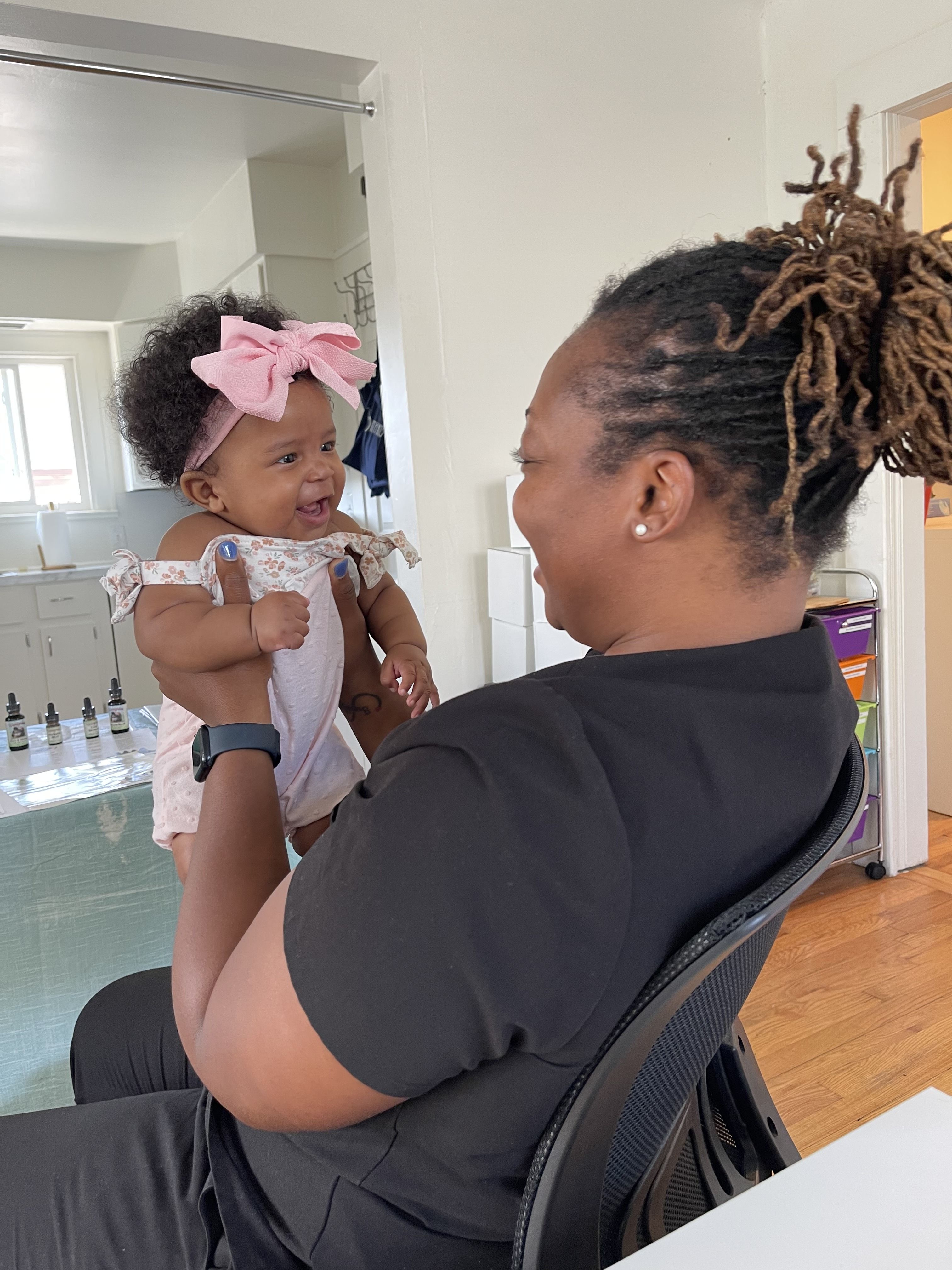
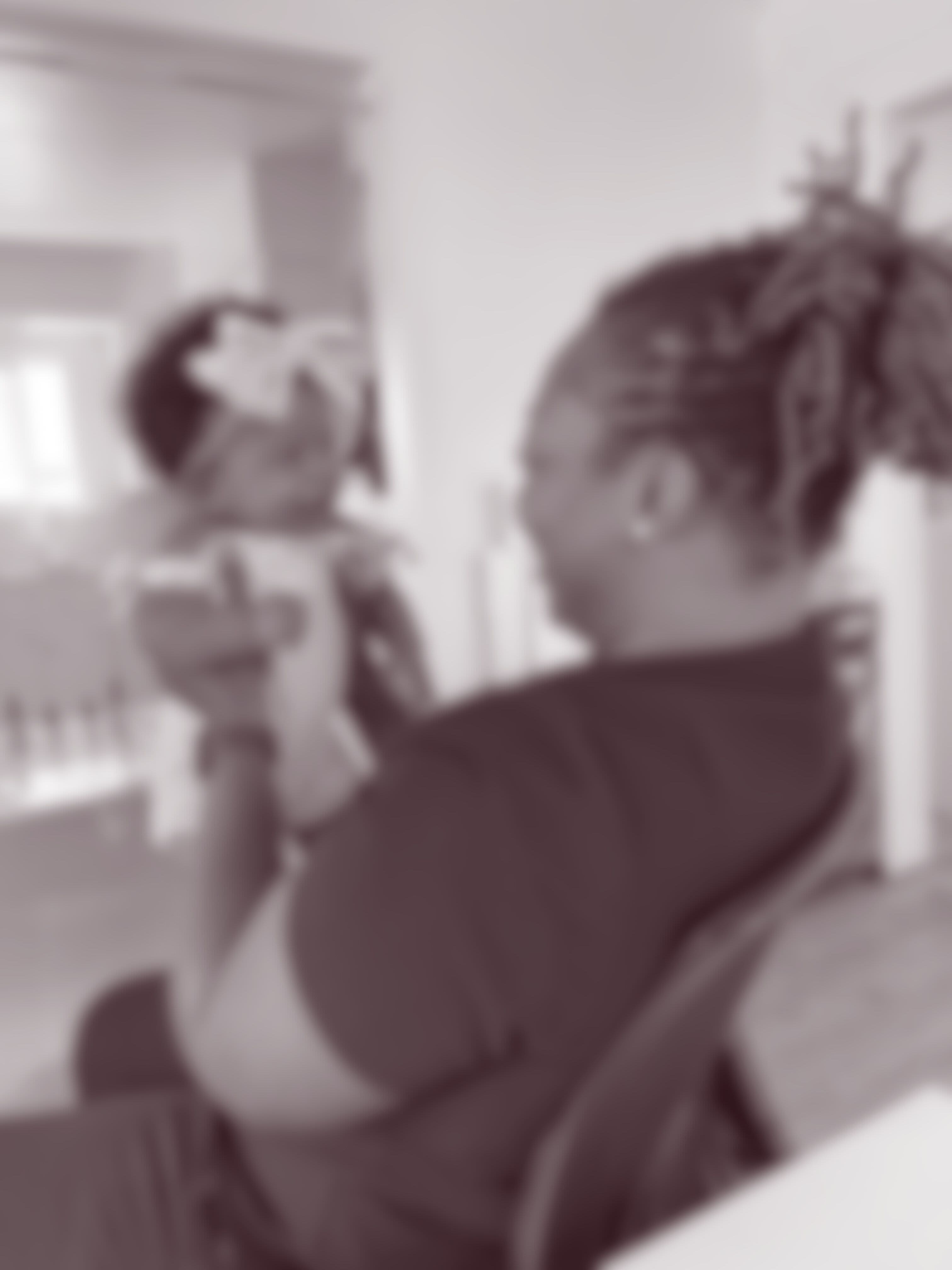
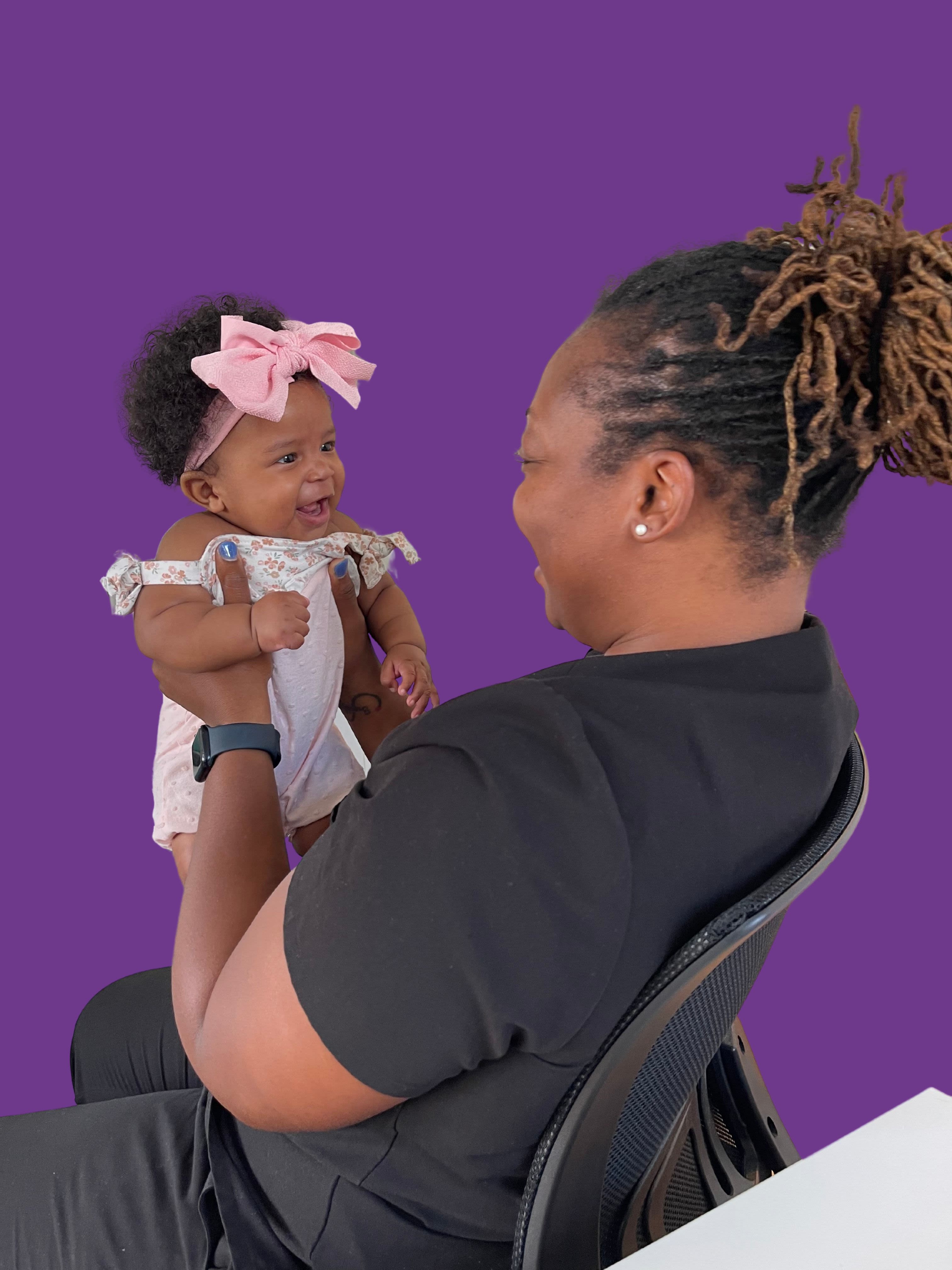
Growing A Beloved Birth Culture
Leseliey Welch challenges us to rethink how we are bringing babies into the world.
By Leseliey Welch
2022 Ascend Fellow
Co-Founder, Birth Detroit and Birth Center Equity
“Each of us has a unique part to play in the healing of the world.”
What if how we cared for birthing people and how we brought our babies into the world were a true moral, cultural, and economic priority? Healthcare design, policy, and investment would center the safety of birthing families. It would not ignore a body of research that demonstrates midwifery and birth centers are part of the solution to the infant and maternal health crises in this country.
I am a dreamer, a strategist, a social entrepreneur, and a Black queer mama, bringing my lived experience and multidisciplinary educational background to bear in the creation of the safe, loving birth care infrastructure we all deserve. I see the promise on the horizon, and I am building for today and for generations to come. This is my contribution to the healing of the world.
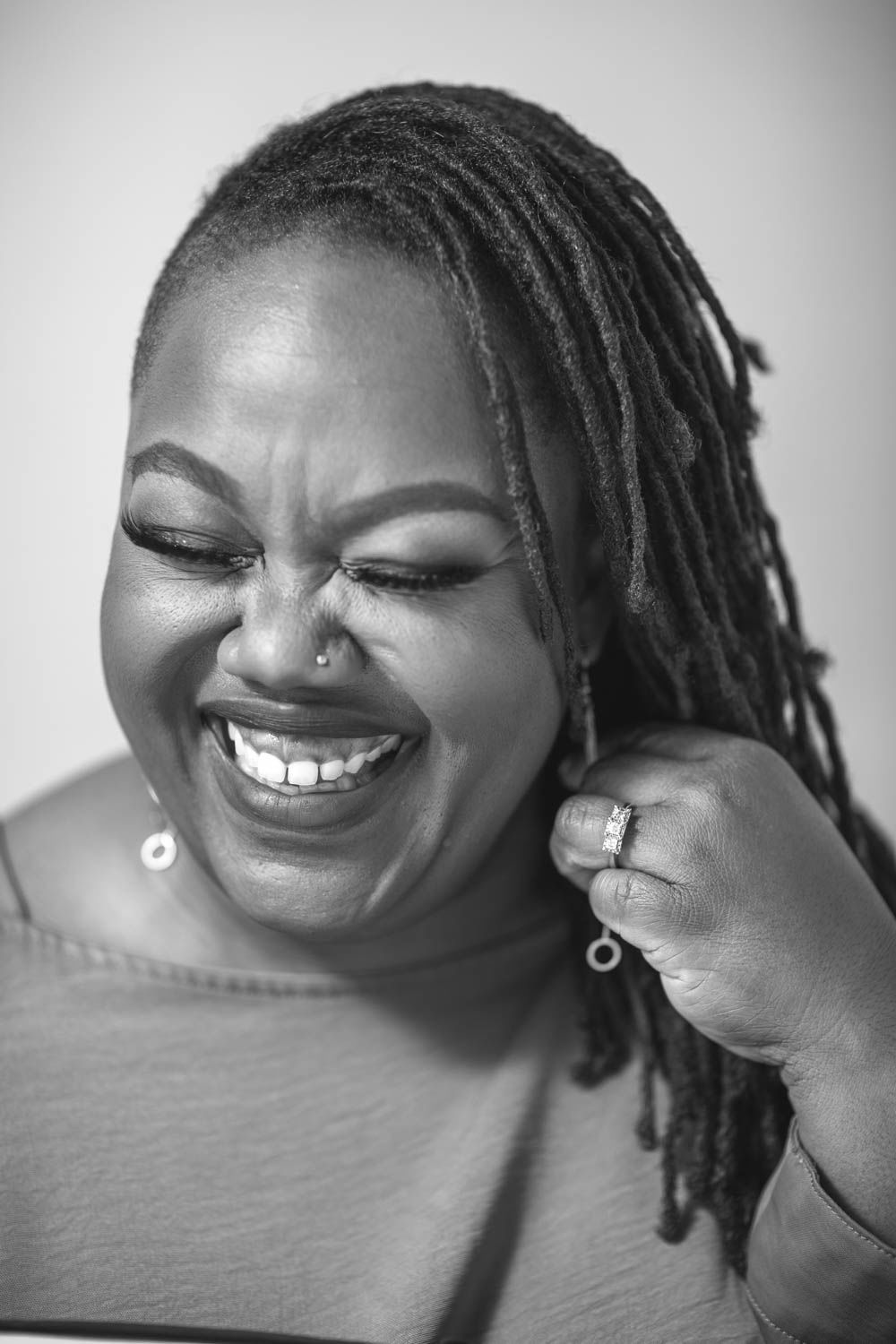
Prematurity, Loss, and Rainbows
When we got pregnant with our first baby, Zoe Rose, I was over the moon. My wife and I were the first young couple in our local Black queer community to get pregnant through artificial insemination at home. Our baby immediately became a community baby. There were more than 75 people in our 1,400 square-foot home for Zoe’s baby shower! Because I had trained as a birth and postpartum doula, I had the benefit of a rich and knowledgeable network of support. Still, my Zoe Rose was born prematurely. We would spend the week after her birth in the neonatal intensive care unit (NICU) until we could welcome her home.
I am one of thousands of Black women in this country who, despite education and income, have had a premature baby. The fact that 14-15% of Black babies are born premature in the US is not only a statistic to me; it is my experience.
Five years later, at 20 weeks, I bounced into my last prenatal appointment before the Christmas holiday. As my midwife began the normal routine of small talk and checking my baby’s heartbeat, her smile faded to concern. There was no heartbeat. My plans to stop for my appointment and then head to a work holiday lunch shifted to meeting my family at the hospital. I was sent up to labor and delivery and ushered into the bad news consultation room, where my options were clunkily explained to me by a midwife at the hospital. She insisted I be induced rather than have a dilation and curettage (D&C). In fact, she told me the hospital did not offer D&C, and I would have to contact my local Planned Parenthood. I was sent home to figure it out.
The days that followed were a blur of sadness, anger, grief, and disbelief. Turns out her advice was incorrect. Days later, I was able to have a D&C at the same hospital at which I had planned to have my baby. I was grateful because the D&C lessened my physical recovery time and left me to focus on my heartbreak and reconciling my faith. From this experience, I came to understand every baby born alive as a blessing not to be taken for granted. It also indelibly impressed upon me the significance of options, choice, and agency. Years later, we would try again, and give birth to our rainbow baby Savannah Jessie Grace, born full term on their due date.
Sadly, infant mortality has also touched my family. I was with my brother and sister-in-law when my nephew Jason William was born and died on the same day. He was born too small (low-birth weight) and too soon, extremely premature. Jason William’s funeral was the first time I ever saw a casket so small.
At that time, I was a Healthy Start Project Coordinator at the Detroit Health Department. I will never forget that day at work when I read Jason William’s name, the date of his birth, and the date of his death on the list of infants lost in the city that year. Reviewing birth and maternal health outcome statistics was never the same for me. In each number, I would forevermore see Jason William, my brother and sister-in-law, my babies, and my family.
Birth Centers
A Population Health Strategy to Improve Family Well-Being
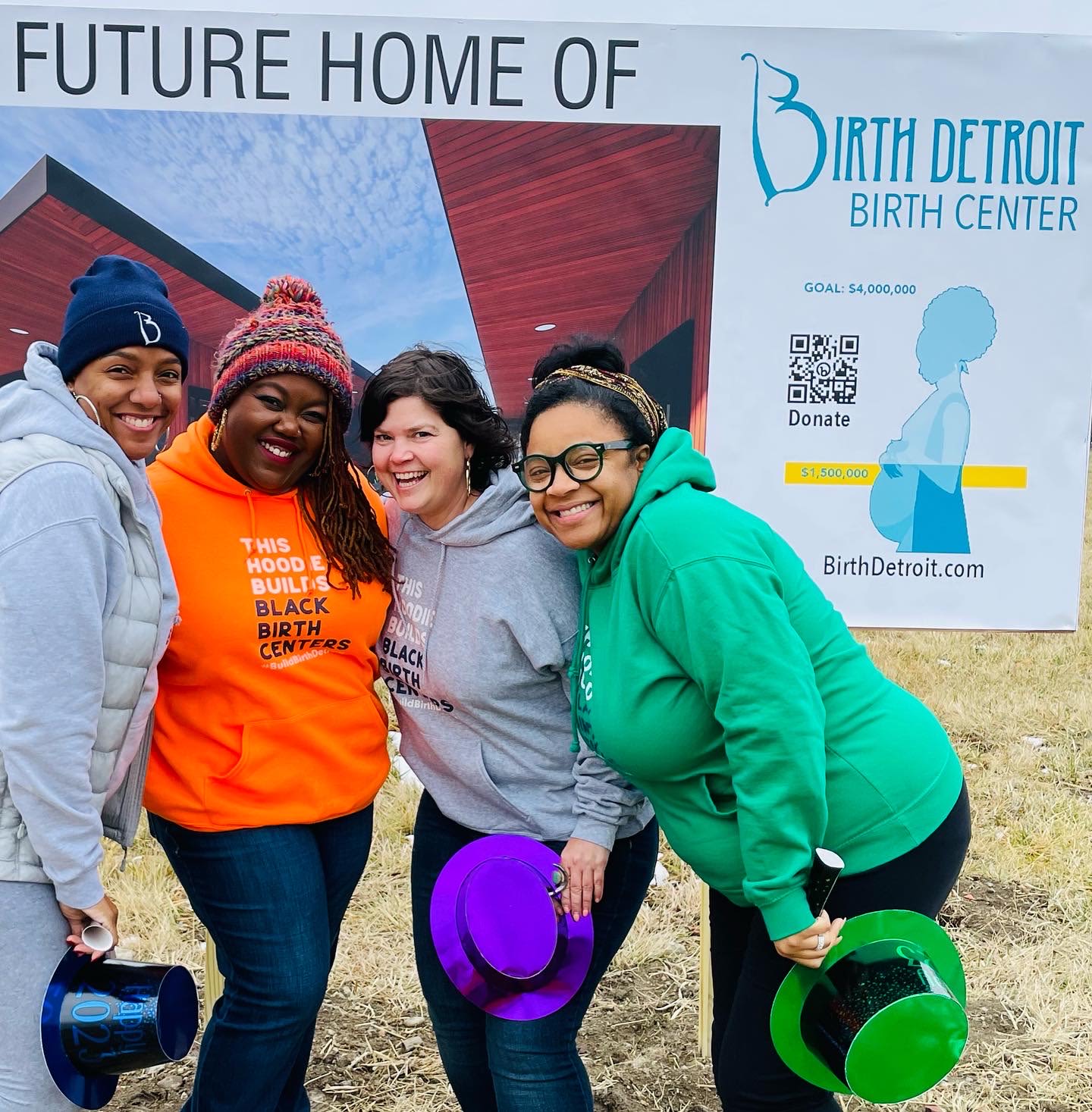
That Healthy Start Project Coordinator position at the Detroit Health Department was my first job out of graduate school, and a little more than a decade later, I became the department’s Deputy Director. Throughout my career in government public health, I worked at both city and state levels,learning about the state of maternal child health in Detroit and more broadly across Michigan. I deeply invested in supporting our teams in their care for mamas, babies, and families. I also learned about the many efforts and investments that were being made to improve the health of birthing people, infants, and families. When I was Chief Strategy Officer at the Department in 2015, there were more than 100 infant mortality reduction initiatives in Detroit.
I was struck by the number and variety of efforts, research initiatives, committees – and yet how persistent the inequities in outcomes were in the face of all our efforts. (Still in 2022 the infant mortality rate for Black infants in Detroit was 18.1, and from 2015-2019 the maternal mortality rate for Black women in Detroit was 43.7 per 100,000 live births and zero for white women.) I started to ask: What is missing? What aren’t we doing? What aren’t we trying? What haven’t we invested in?
Around the same time, I began to study the health systems of countries with better birth outcomes than the United States. Rich practices appeared like pinpoints of light on the horizon: Midwifery-led care. Birth centers. I also remembered, early on in my role at Healthy Start, visiting a neighborhood clinic staffed by midwives. I can still recall the frustration that my director Carolynn Rowland expressed: The clinic had some of the best outcomes in the city yet it was closed due to lack of funding.
Midwives are trained and licensed health care providers who specialize in birth and the reproductive life cycle. A birth center is a freestanding, homelike place where midwives provide prenatal, birth, and postpartum care. A community birth center is a birth center where safe, culturally-reverent care is provided by midwives representative of the community it calls home. Research shows that the benefits of birth center care are extensive, including: healthier birth outcomes, better birth experiences, higher breastfeeding rates, greater autonomy and respect – and lower overall costs to families, payors, and health systems.
But despite these known benefits, the majority of birthing people in the US do not have access to midwives or birth centers. Instead, most enter highly medicalized and impersonal care environments. For those of us who American history and culture have deemed less valuable based on race, gender identity, or attractional orientation, these environments can be dismissive, disrespectful, and dangerous.
At the time my grandparents were born, midwives attended almost all births. Community midwifery care was not “alternative birth care”—it was health care. Then in the early 1900s, government-backed campaigns, targeted legislation, and economic divestment moved birth out of the hands of midwives and communities into the hands of obstetricians and hospitals.
This is the culture of birth we have created: Today, childbirth is the number one reason people are admitted to hospitals in the US – but not because hospital births are best for everyone. In fact, birth in the US is costly, and our outcomes are poor.
I’m going to share a well-kept secret: birth is not a medical emergency. Childbirth is a natural, physical process, and for most people, requires little to no intervention. Research shows that upwards of 80% of birthing people could safely give birth with midwives in a community setting. And if for any reason, birthing people need an obstetrician or a hospital, midwives are trained to recognize it and make sure they get the additional support they need.
An even bigger secret is that birth center care makes good financial sense. It is value-based care. Cost analyses project an annual, system-wide cost savings of $189 million with a shift of 1% of births from hospital to birth center. Increase this shift to 20% and $4 billion dollars can be saved by 2027.
Investing in community birth centers should be a large-scale population health strategy to improve perinatal health and family well-being in our communities.
Birth Detroit
More Than a Birth Center
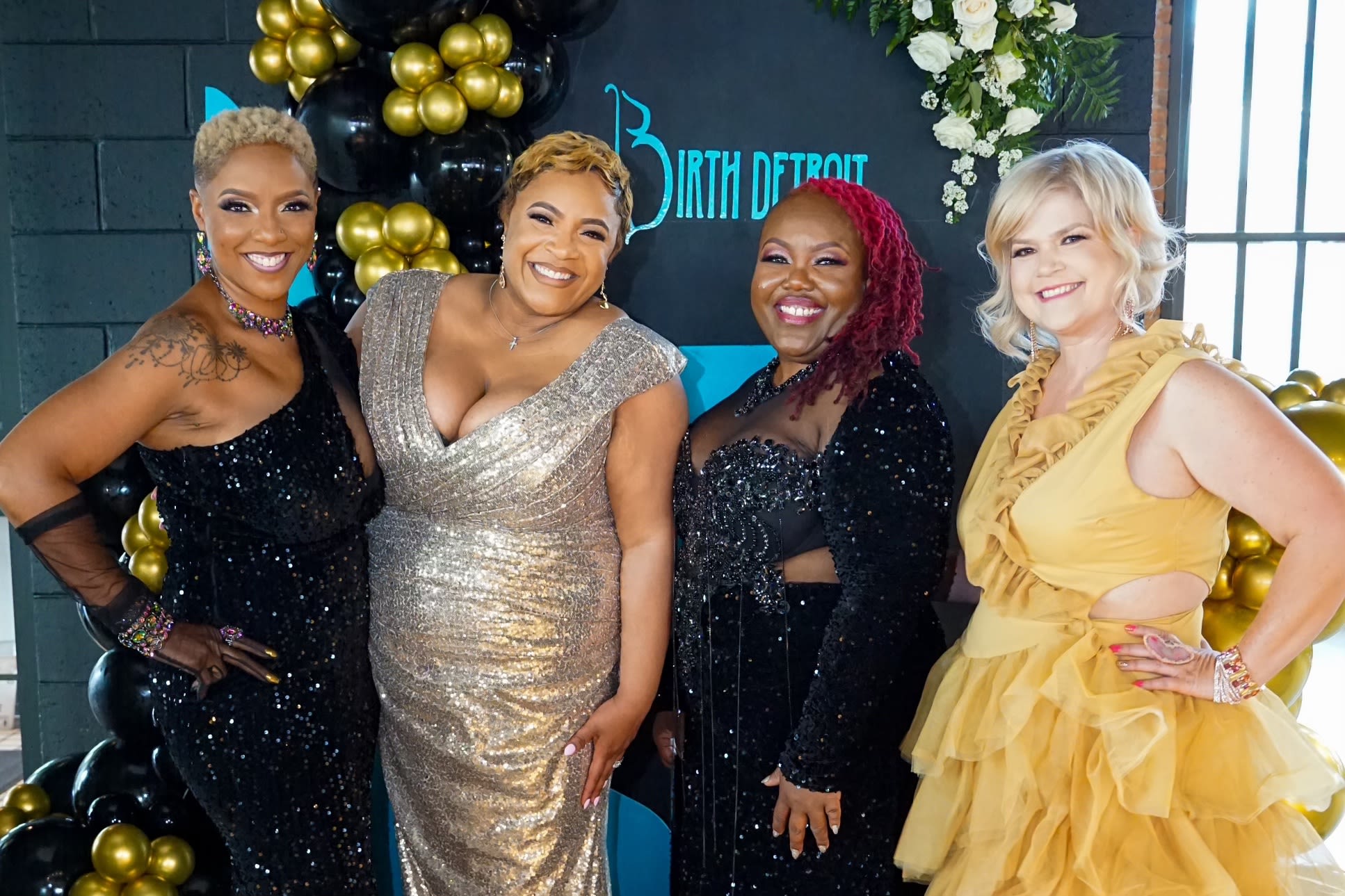
My dreammates Char’ly Snow, Elon Geffrard, and Nicole White and I founded Birth Detroit on the premise that we are no longer asking permission to save our own lives. Birth Detroit is a justice response to poor birth outcomes and inequitable care options in our communities.
Since 2018, Birth Detroit has advanced a multi-pronged strategy of community organizing, fund development, and advocacy to make midwives and birth centers a real option for Black birthing people in our communities – and it is finally happening. We are opening the city’s first freestanding birth center and the first-of-its-kind Black-led birth center in Michigan.
We opened our first neighborhood-based midwifery clinic, Birth Detroit Care in collaboration with Brilliant Detroit, on Detroit’s northwest side in October 2020, and since then our team has provided prenatal care, postpartum care, ultrasounds, labs, childbirth education, infant CPR, and doula support services to hundreds of families. Together with generous donors, partners, and community members, we have also raised $4 million dollars, purchased land in the city, and started building. Phase one of our brand new state-of-the-art birth center will soon be complete and our midwives will be caring for families and catching babies at Birth Detroit Birth Center by this fall 2024.
Birth Detroit is more than a birth center. We intend to demonstrate how Black-led birth centers can be valuable assets to our communities, health systems, and our economy. By 2030, our multi-acre site will be home to the Birth Detroit Care Campus, which will double the birth center’s size, provide space for values-aligned care providers and partners, and develop a midwifery education and training center.
Infrastructure
Beloved Birth Culture & Beloved Economy
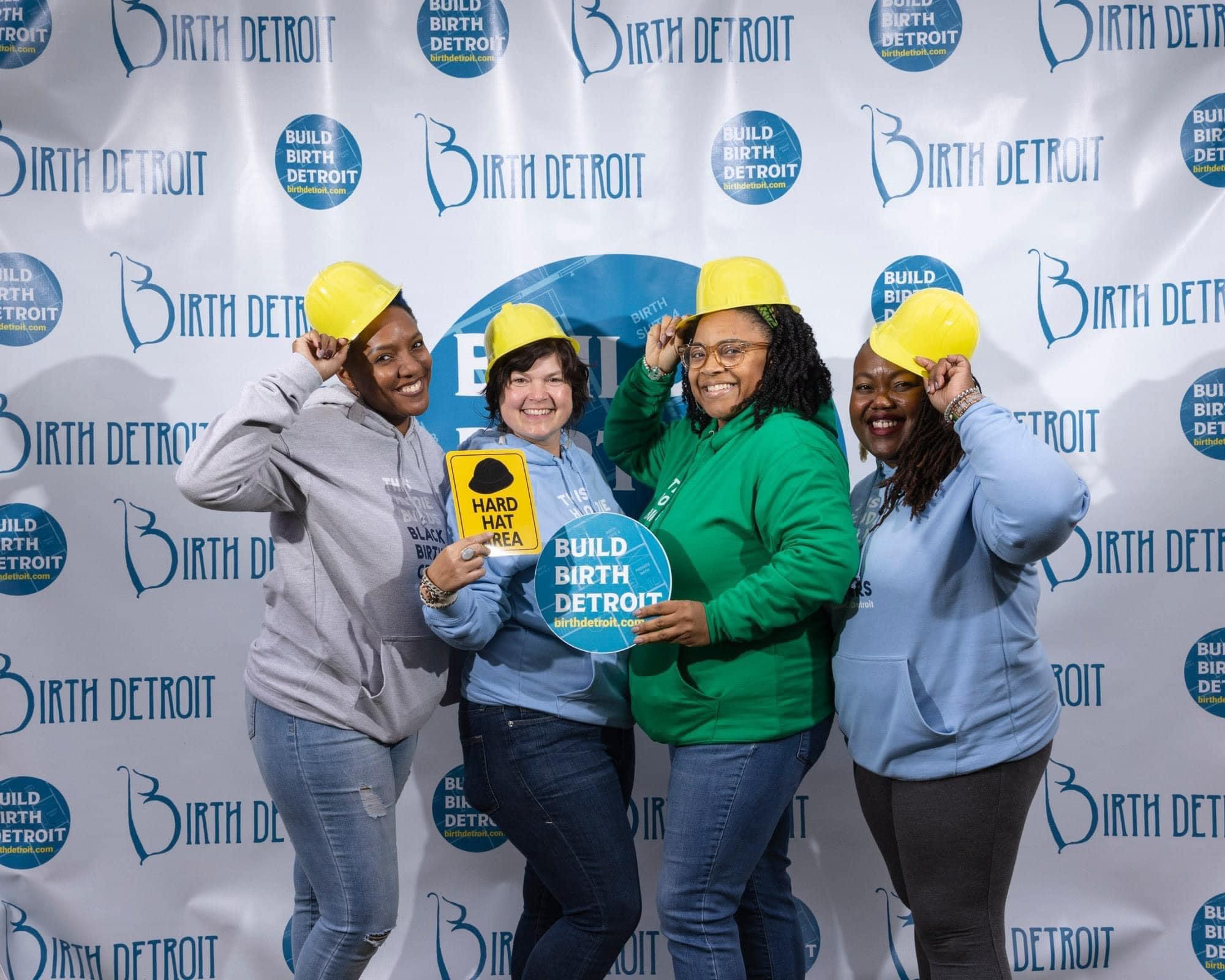
In a beloved economy, how we enter this world matters. Connection, cooperation, and care are ethical and economic priorities; abundance is real; and capital flows in ways that truly support health and well-being. In a beloved economy, safe, quality, loving care across birth settings is not the exception, it is the rule.
I have often heard folks repeat the myth that the birth center model of care does not work or that birth centers are not sustainable. What is true is that our existing healthcare infrastructure does not work and is not sustainable. Our existing healthcare system does not support the known best practice of integrated care, which includes community birth centers. We can invest in health systems where midwives and physicians share responsibility for birth care, are respected for their distinct areas of expertise, practice within the full scope of their licenses, collaborate and coordinate care, and are equitably reimbursed.
When people ask what is needed to make a vision of safe and loving birth care for everyone a reality, the reply is often “more midwives.” This is true – and it goes beyond that. We need healthcare infrastructure that supports midwifery care. The workforce is only one component of healthcare infrastructure. To shift birth culture in all of our best interests requires significant shifts in five areas:
- Workforce
- Services
- Facilities
- Policies and regulations
- Resources
It requires those of us trained in public health to prioritize and budget differently. It requires healthcare investors to invest differently. It requires all arms of infrastructure to build toward expanded, equitable access to midwives and birth centers.
A Promise on the Horizon

Birth Center Equity (BCE) is on a mission to make birth centers a real option in every community by investing in community care infrastructure. BCE’s mission is to invest in Black, Indigenous, people of color-led birth centers to grow and sustain community birth infrastructure for generations. To date, BCE has invested more than $2M in our network of 40 established and developing birth centers. Like Birth Detroit, BCE also has a multifaceted strategy. It includes not only capital investments, but also community power building, advancing birth center sustainability through business development, developing public-private partnerships and integrated financial models, and inspiring a new culture of birth. We envision a culture of birth that resources community birth centers as essential safe-birth infrastructure, respects midwives as leaders in care, and embodies values of safety, abundance, and liberation.
It is time that medicalized birth culture gives way to beloved birth culture.
Physician-centric and physician-led birth anchored in hospitals and rooted in hierarchies of human value is not what our communities need; in fact it was never what our communities needed. Instead, we are seeding and resourcing the beloved birth culture of the future. Beloved birth culture is family-centric, midwife-led, and community-held. It honors the inherent value of all people.
As I reflect on the moral conflicts of our time, I offer that it is at the origins of the universal experience of being born that we will find our shared humanity, and access the gentleness, compassion, and empathy that is so desperately needed today. Looking ahead to the Juneteenth holiday and the second annual Birth Center Week that starts on September 14, join me in uplifting this vision of beloved birth culture and beloved economy.
Let’s grow lasting community care infrastructure for generations to come and make the promise on the horizon a reality – a world where every community has access to midwives and birth centers.
Additional Resources
- Birth Center Week: The second annual Birth Center Week will take place September 14-20, 2024. Birth Center Week celebrates and elevates the impact and potential of birth centers, with a focus on community birth centers that provide safe, culturally-reverent, midwifery-led health care for all. This year’s theme is Grow Birth Centers. Grow Community.
The video below captures the history of midwifery in the US and the role of Black, Indigenous, midwives of color leading a growing network of community birth centers.
- Grow Birth Centers Briefings: The first Grow Birth Centers Briefing was recently held in Chicago in collaboration with Chicago Beyond, South Side Birth Center, and Wright Collective. Briefings in San Francisco, and New York are in the works. For more information email: yve@birthcenterequity.org.
- It’s About Time: Birth Detroit celebrated its accomplishments at its sold-out May 4th It’s About Time gala. Learn more about the gala and Birth Detroit Birth Center’s ribbon cutting this fall.
- Aspen Ignites: Leseliey Welch shares a conversation with Ascend Managing Director Marjorie Sims about transforming the birth experience.
More Stories from Ascend

Photo by Thiago Cerqueira on Unsplash
Photo by Thiago Cerqueira on Unsplash
Seismic Shift in Child Welfare
How Ascend Fellows are reshaping child welfare policy
How the Ascend Fellowship Fosters Connection
2023 Ascend Fellow Tonja Rucker details how her professional network has grown.
Problem Solvers
2018 Ascend Fellow Dr. Matthew Biel is equipping a new workforce to support the mental health of families

